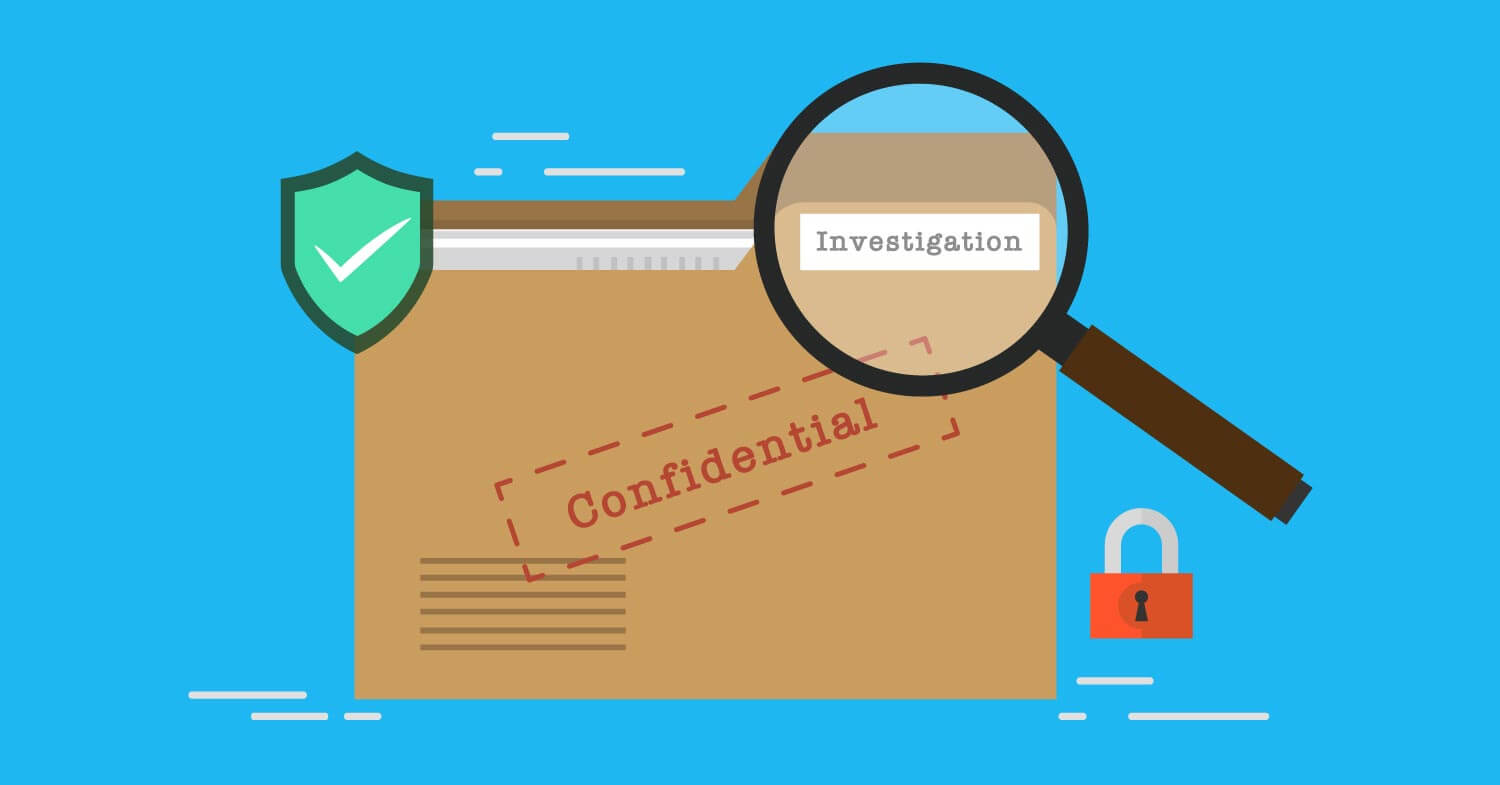Estimated reading time: 8 minutes
An investigation is a thorough, precise, and systematic attempt to uncover the truth about something or someone by gathering facts. In reality, investigations are more nuanced. There are many types, from fraud investigation and detection to insurance investigations and even general business investigations. Despite their many differences, investigations share one key similarity — they require a variety of skills and tools.
If it were easy to get to the truth about everything, there would be no need for an investigation. That being said, some are more involved than others, and the type that tends to be the most complex across the board is also one of the most important — criminal investigations.
To avoid punishment, criminals often try to hide the truth from investigators. This requires law enforcement and criminal investigators to work with several more powerful tools to get to the bottom of the crime.
Fortunately, detective tools used by law enforcement and investigators for criminal investigations have improved dramatically due to innovations in science and technology. Though there are hundreds of different tools that are constantly evolving, here we’ll discuss three different tools of criminal investigation that supplement crime solving skills.
What are the tools of criminal investigation?
Fans of detective and law enforcement shows on TV are most familiar with the items used at a crime scene. But unlike those depictions, there is more to an investigation than a flashlight, magnifying glass, tweezers, and other items used by forensic experts.
Once a crime scene has been processed and the physical evidence is gathered, the real work begins. Investigators will then utilize multiple tools to analyze the gathered evidence and research important data.
To begin, police use the most obvious tools in investigation:
- Surveillance footage
- License plate scanning
- Social media posts
- Cell phone data, including:
- Usage
- Search history
- Location history
- Chat, text, and other messages
- Digital forensics (phones, laptops, etc.)
- DNA testing
- Interviews and interrogations
- Other forensic tools like 3D Scanners and facial recognition software
Many tools for investigation work with just one aspect of a case. But to complete an investigation, more may be needed. These three next tools are some of the strongest for a criminal investigation.
Layered Voice Analysis for criminal investigation
Layered Voice Analysis (LVA) is a more controversial tool used in criminal investigations. But it is still a powerful and fascinating tool. Invented in 1997 by Amir Liberman, LVA technology uses mathematical processes to detect different patterns of speech reflected in voice and classify these patterns in terms of human emotions like stress or excitement. According to Nemesyco, the company that invented LVA technology, the technology “enables better understanding of your subject’s mental state and emotional reaction at a given moment.”
LVA can be used in criminal investigations to help determine whether a subject who may be involved with a crime is lying or not during questioning. It can also uncover someone’s emotional reaction for insight into whether a subject has a personal connection to the crime.
Today, LVA technology can analyze a voice sample and provide results in minutes. Experts can then analyze the findings to uncover anything of interest. However, it is a controversial tool, particularly when used as a form of lie detection. One study of LVA technology found that, on average, it was only accurate 42% of the time.
Though the jury is still out on the accuracy of LVA as a form of lie detection. Butit is still an incredibly powerful tool for criminal investigators to assess the emotions of persons of interest and determine whether they may have information about a crime.
- Layered Voice Analysis (LVA) is a tool that identifies an individual’s emotional patterns by analyzing that person’s voice and speech patterns.
- Voice analysis may help investigators determine whether someone is lying or whether they know more about a crime than they are letting on.
- Though it is not entirely clear how well LVA can actually detect lies, it is still a useful way to gain more insight into a suspect’s emotional reaction to a crime.

Integrated Automated Fingerprint Identification System (AFIS)
Fingerprinting has been used in forensic science since 1892 to identify criminals. However, up until the 1980s, fingerprint records had to be compared manually, which was cumbersome and inefficient. In the 1980s, the Japanese National Police Agency developed a computer system called the Automated Fingerprint Identification System (AFIS), which automatically cross-checked millions of prints all at once. In 1991, the FBI developed the Integrated AFIS, which could automatically compare fingerprints from everywhere in the US in under 30 minutes.
Today, the Integrated AFIS houses the fingerprints and criminal history of 70 million individuals. The database contains electronic images of fingerprints made from scans. When used in a criminal investigation, law enforcement agents submit fingerprints into the database, and the system will compare the images to other images in the database. It will then provide the user with any matches, along with additional information about the matching individual, all within one day.
This fast turnaround allows law enforcement agents to quickly identify individuals whose fingerprints were at the scene of a crime and learn about their criminal history. This information gives them greater insight into whether the individual actually perpetrated the crime.
Though fingerprinting has been around for decades, this fingerprinting tool is one of the most useful and powerful tools law enforcement agents and the government can use to identify criminals.
- The Automated Fingerprint Identification System (AFIS) is a computer tool used by law that identifies criminals whose fingerprints were found at the scene of a crime
- The Integrated AFIS, an extension of the AFIS, contains the fingerprints of over 70 million individuals and can compare fingerprints across the US in less than 30 seconds
- When used in criminal investigations, the integrated AFIS helps law enforcement agents uncover the criminal history of the individuals whose fingerprints are a match
Public and private records database tools for criminal investigation
Of all the police investigation tools available, data is one of the most important. DNA, fingerprints, background, and other material are stored in voluminous databases that are accessible to law enforcement.
Some data can be found online through public records and available databases. But you may not get complete data, or even current. Incorrect information can stall or even derail an investigation.
Though it may not be as fancy or high-tech as the other tools used on this list, a public and private records database is in many ways one of the best investigator and law enforcement tools for criminal investigations. People have been gathering records for decades to perform a full background investigation on people of interest and map out connections.
However, gathering records for a criminal investigation in the past traditionally required going to courthouses or libraries, requesting physical copies of records, sorting through them, and manually compiling the records together to create a report. Today, public and private records databases like Tracers instantly provide you with all the information you need to build profiles on individuals for criminal investigations.
Tracers is a cloud-based crime analytics software that allows users to access over 42 billion public and private records from any device at any time. Searches like utility history by address and people search by address provide you with the best way to trace persons of interest and potential witnesses to their address. You can also find names of relatives to build webs of connections and search social media to discover social media evidence and uncover potential locations of suspects.
Another Tracers tool that is helpful for criminal investigations is a criminal record finder. This can be used to find information like arrest records, department of corrections records, court conviction records, sex offender records, and more. The tool allows you to determine whether someone has a history of criminal behavior and may be more likely to commit a crime. You can even perform an asset investigation and use the best property records search to uncover trails of evidence and find out if suspects are hiding anything.
- A public and private records database provides investigators with comprehensive information about a variety of individuals.
- Investigators can search a public and private records database and uncover criminal histories, addresses, social media activity, assets, and more.
- With the information in a public and private records database, investigators can map out connections and build profiles on individuals to help solve their investigations.
Tracers also provides information sharing law enforcement for multiple jurisdictions so investigators and law enforcement agencies can share data and collaborate on investigations to solve crimes quicker. With Tracers public and private records database, you search records in seconds and view the data in easy-to-read reports, allowing you to find the key pieces of information you need to solve crimes more efficiently and with less effort.
The importance of the different tools of criminal investigation
Out of all the investigative tools at your disposal, data is the one that brings it all together and helps you complete everything. A wide range of data points may be useless without data to show relationships and “connect the dots.” From family relationships and past work experiences to previous criminal records, accessible public and private records in a system like Tracers helps further an investigation. These three tools of criminal investigation are some of the most powerful available for law enforcement.
If you’re ready to see how Tracers public and private records database can help your criminal investigation, get started today.

